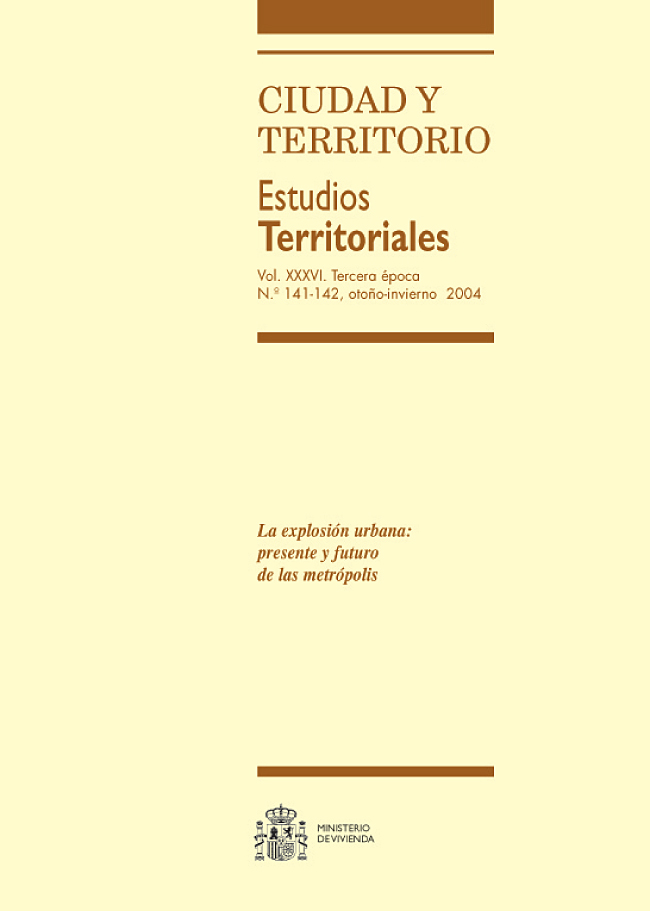The Coming City:Are We on Our Way to the Universal Pantopolis?
Keywords:
Ciudad futura, economía ecológica, ecología, globalizaciónAbstract
The author feels that when faced with the ecological consequences of population and urban growth coupled
with the unrelenting run on planetary means, the 3D forms that could be thought up to solve the problems
of living in the city of the future stand revealed as irrelevant. In the light of this conviction, the paper
considers the thermodynamics of open systems and assays a determining of the maximum mass of population
that this Earth could bear (its maximum carrying capacity) as within that necessarily finite space (its
ecological foot print) this last tempered by what technological skill could make viable. Observed tendencies
in growth are here thought to in some wise ameliorate the previous projections as what must come would
seem to be promising a world in which but 90% of the overall population would be found to be living in the
cities, cities progressively linking up between themselves to create a manner of world-wide web or pantopolis
but this leaving between its lines of linkage enough natural spaces as would be required to sustain the calls
of nature of this maximum carrying capacity of urban population. The paper makes an analysis of the three
hypotheses to any future world picture for its urban population as within the terms of the aforesaid physical
limit with this informed by present day tendencies towards dispersion and expansive diffusion presupposing
when doing so an unstoppable process towards an entropic balance as within a uniform space until a low
average density saturation of useable space establishes itself. The paper is rounded out by a considering of
the contrasted political options to hand apt for a universal governance of such a great built up pantopia and
comes down in favour of the only rational and probable option that any optimistic could offer as an alternative
for the black alternative menace of globalized chaos.
Downloads
Downloads
Published
How to Cite
Issue
Section
License
Copyright (c) 2004 Javier García-Bellido García de Diego

This work is licensed under a Creative Commons Attribution-NonCommercial-NoDerivatives 4.0 International License.
Considering the provisions of the current legislation on Intellectual Property, and in accordance with them, all authors publishing in CyTET give -in a non-exclusive way and without time limit- to the Ministry of Transport, Mobility and Urban Agenda the rights to disseminate, reproduce, communicate and distribute in any current or future format, on paper or electronic, the original or derived version of their work under a Creative Commons Attribution-NonCommercial-NoDerivative 4.0 license International (CC BY-NC-ND 4.0), as well as to include or assign to third parties the inclusion of its content in national and international indexes, repositories and databases, with reference and recognition in any case of its authorship.
In addition, when sending the work, the author(s) declares that it is an original work in which the sources that have been used are recognized, committing to respect the scientific evidence, to no longer modify the original data and to verify or refute its hypothesis. Author(s) also declare that the essential content of the work has not been previously published nor will it be published in any other publication while it is under evaluation by CyTET; and that it has not been simultaneously sent to another journal.
Authors must sign a Transfer of Rights Form, which will be sent to them from the CyTET Secretariat once the article is accepted for publication.
With the aim of promoting the dissemination of knowledge, CyTET joins the Open Journal Access (OA) movement and delivers all of its content to various national and international indexes, repositories and databases under this protocol; therefore, the submission of a work to be published in the journal presupposes the explicit acceptance by the author of this distribution method.
Authors are encouraged to reproduce and host their work published in CyTET in institutional repositories, web pages, etc. with the intention of contributing to the improvement of the transfer of knowledge and the citation of said works.








 Enlace a CyTET en Linkedin
Enlace a CyTET en Linkedin